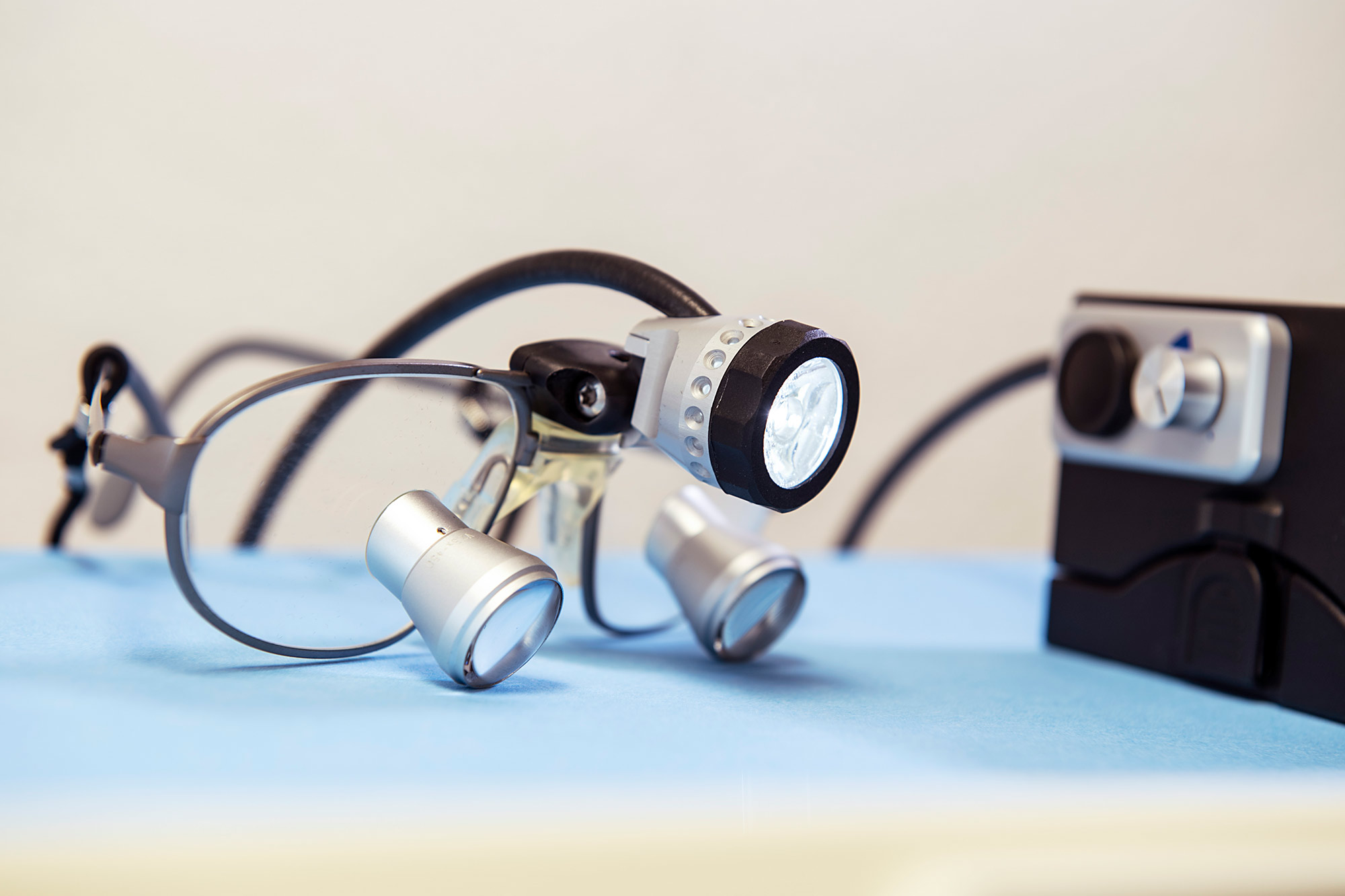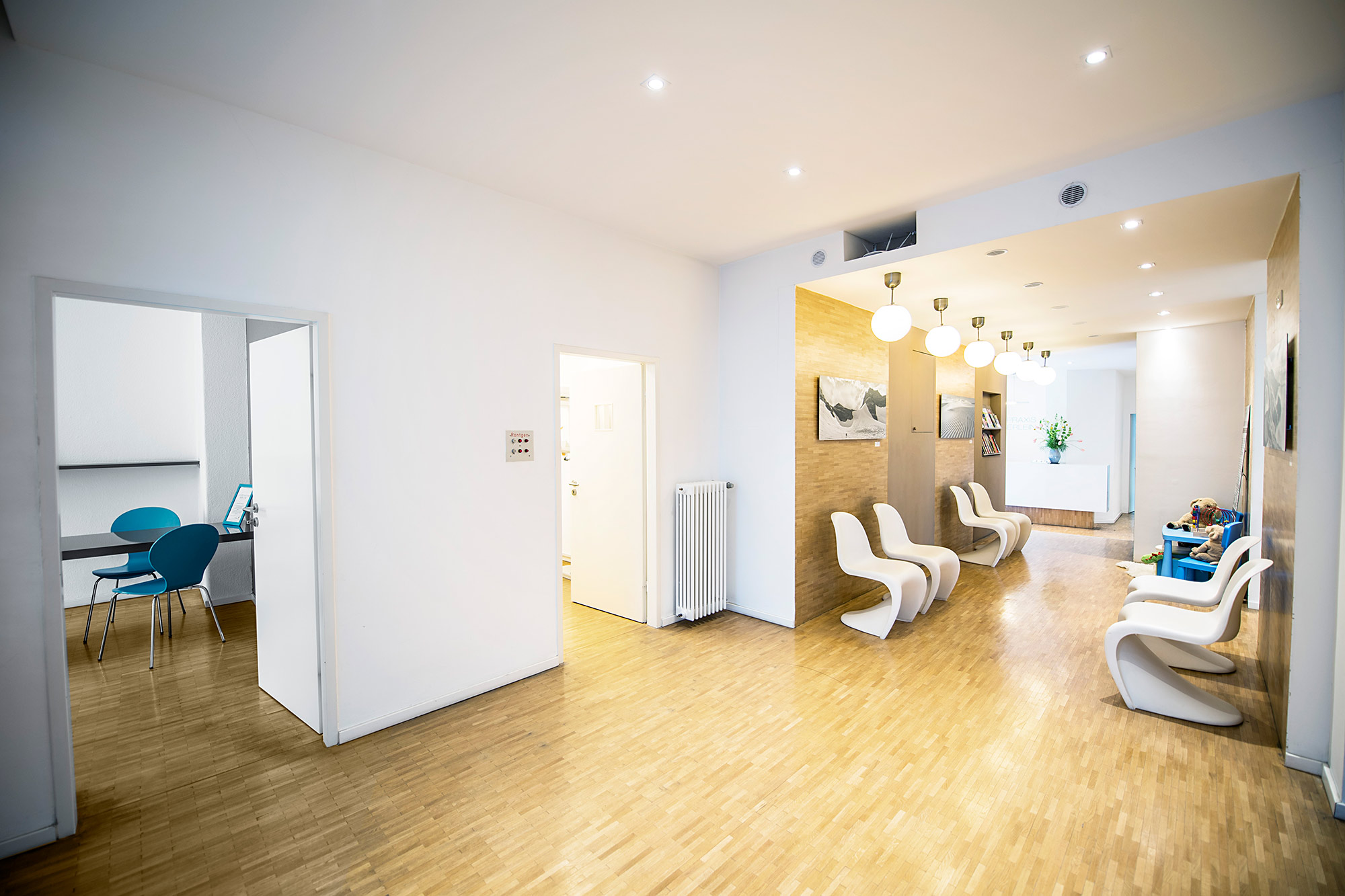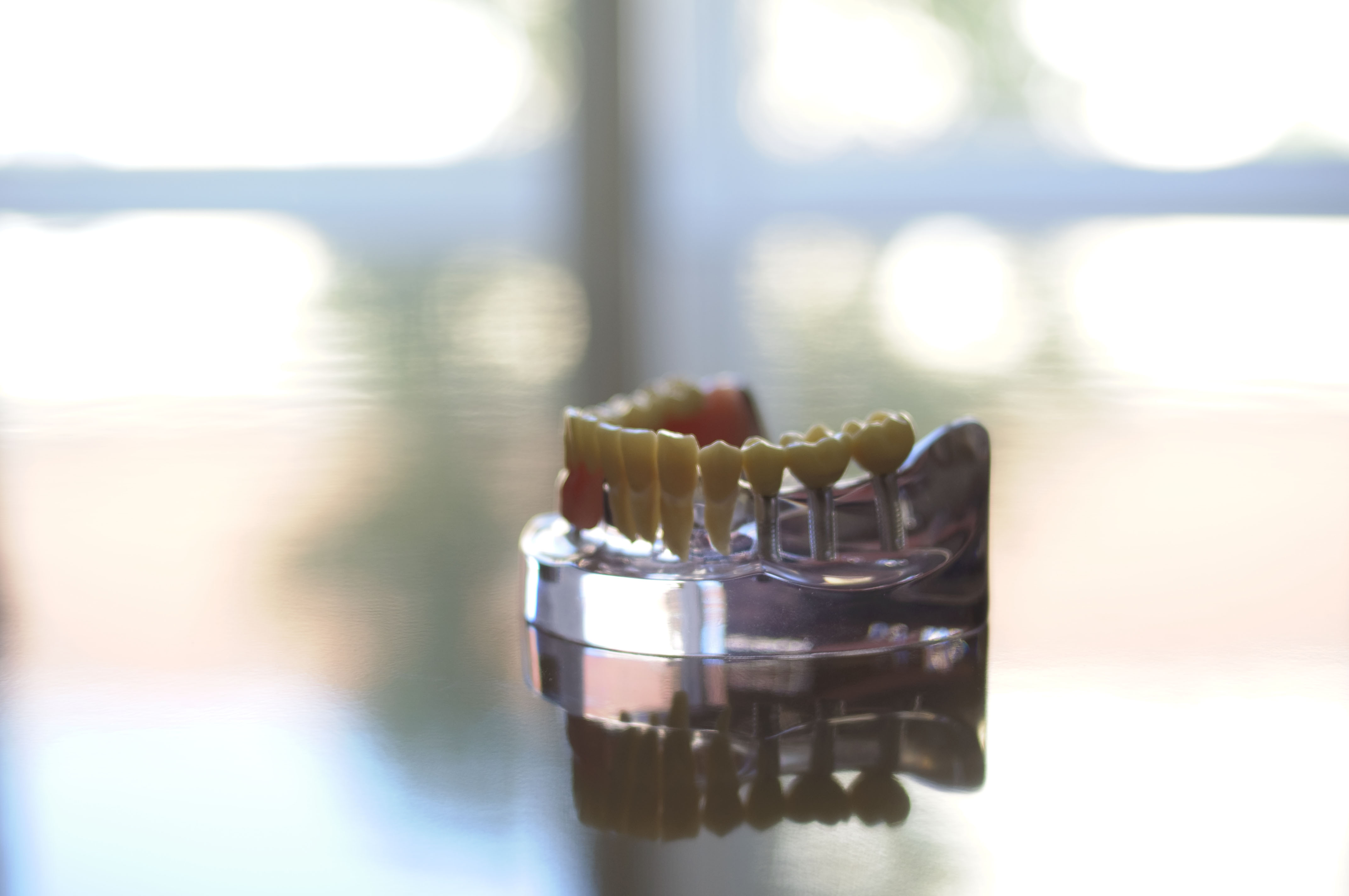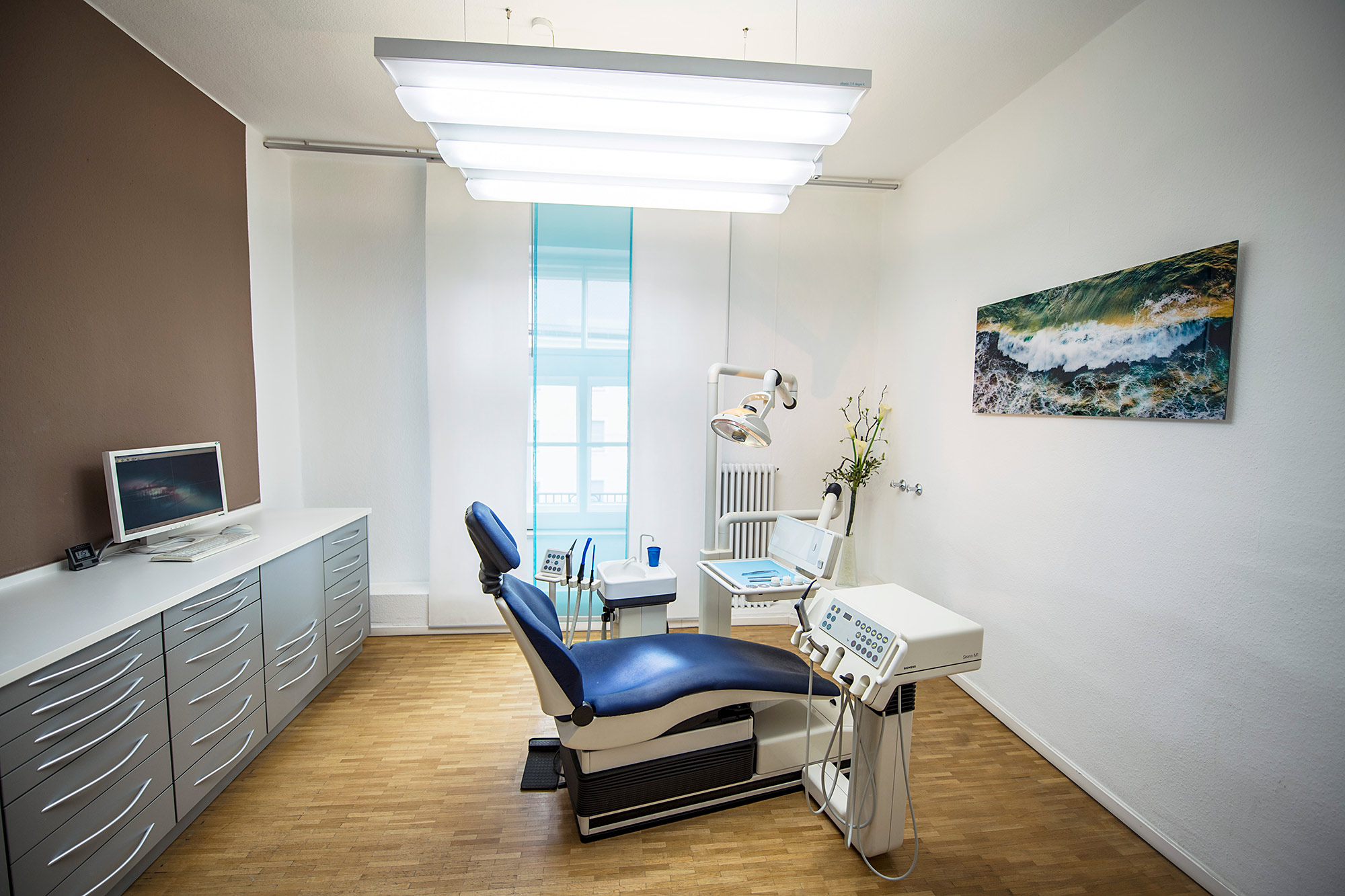




Periodontology
Parodontitis is an inflammatory disease of the periodontium.
It is the most common cause for tooth loss at an adult age and results from a bacterial infection of the ligamentous apparatus that fixes the tooth within the bone. At an early stage a lot of patients don’t have any problems at all. Through a change in the blood circulation the disease is often only noticed by an increased level of gum bleeding. In the following stages the bone loss increases and is often only recognised by the patient at a late stage in the form of a loosening of the tooth resulting in a restricted chewing function. At this stage therapeutic possibilities are often limited leading to such an extent that affected teeth might need to be removed. To ensure this does not happen, it is important to not only thoroughly examine the teeth regularly but the gum as well. This way therapeutic measures can be taken early on if necessary.
There are evidence-based studies proving that the risk of coming down with parodontitis is significantly lower for patients who undergo professional dental cleaning regularly. Thanks to state-of-the-art microbiological examination methods even aggressive periodontal diseases can be detected at an early stage nowadays. If parodontitis can be diagnosed at such an early stage, it can normally be treated successfully.
Besides classical approaches including prophylaxis and intensive cleaning, the treatment also includes, depending on the stage and degree of the disease, antiinfectious and antibiotic therapy and state-of-the-art regenerative methods that create a matrix at the tooth root by applying special proteins. This can lead to a return of cement- and bone cells. Lost structures of the dental apparatus can hardly ever be reconstructed entirely but most often they can be stabilized and recover partly. An intense cooperation of the patient in the form of a good oral hygiene is a prerequisite for a sustainable therapeutic success. That’s why we offer a close recall-system for our patients if wanted in order to not miss a cleaning interval.
